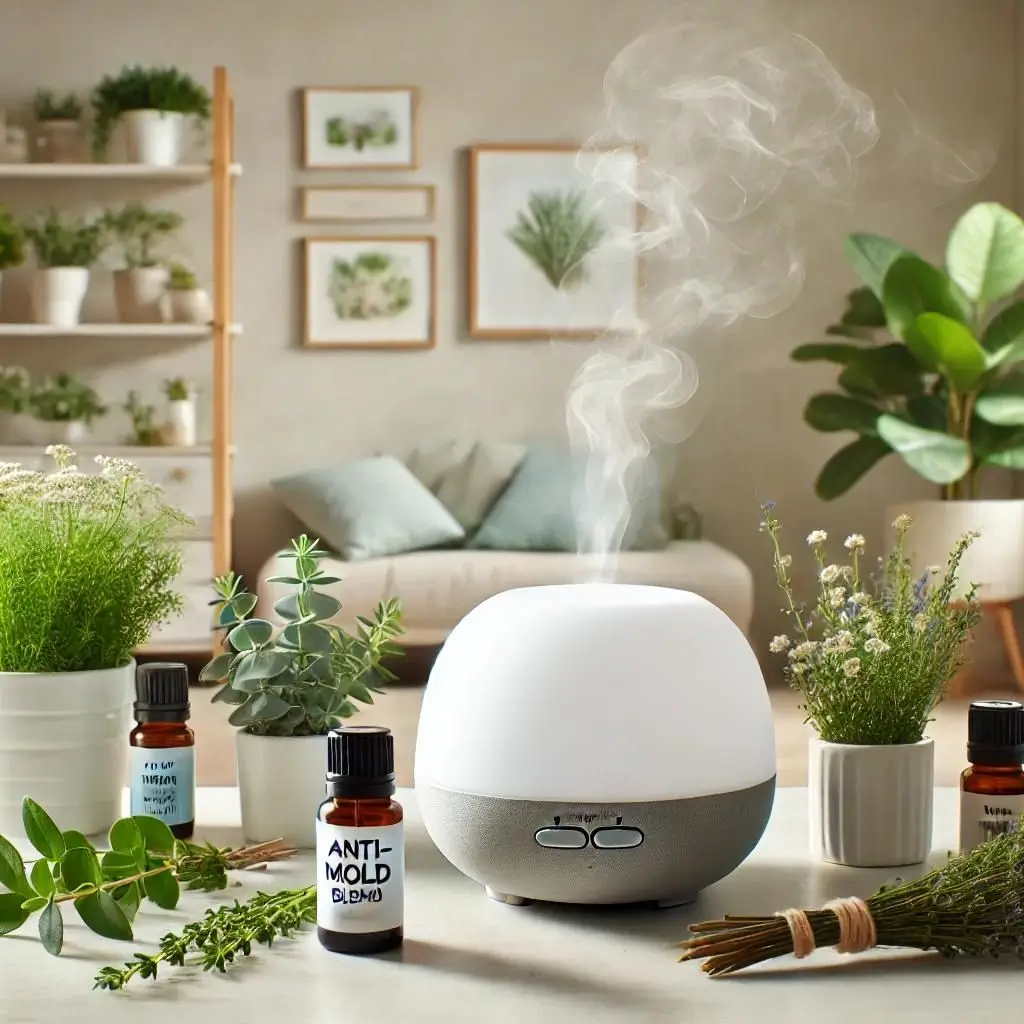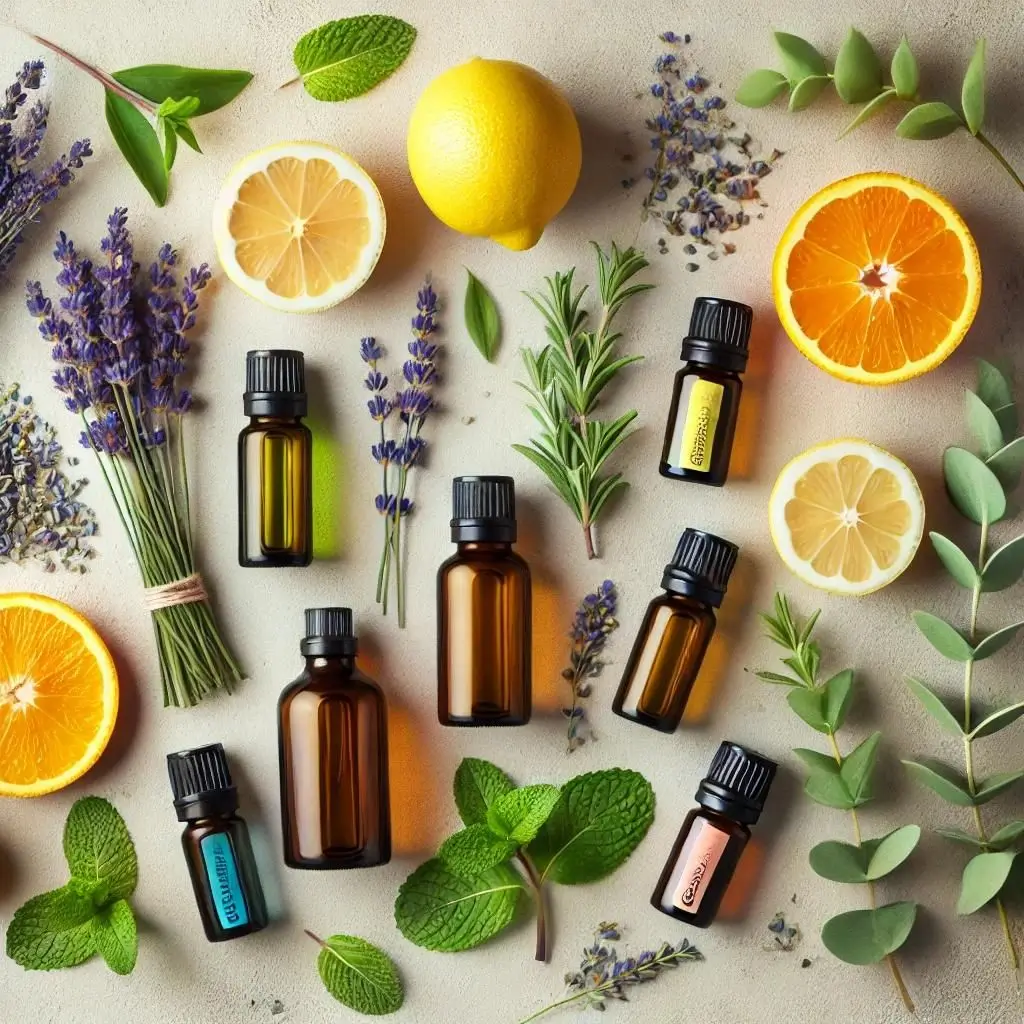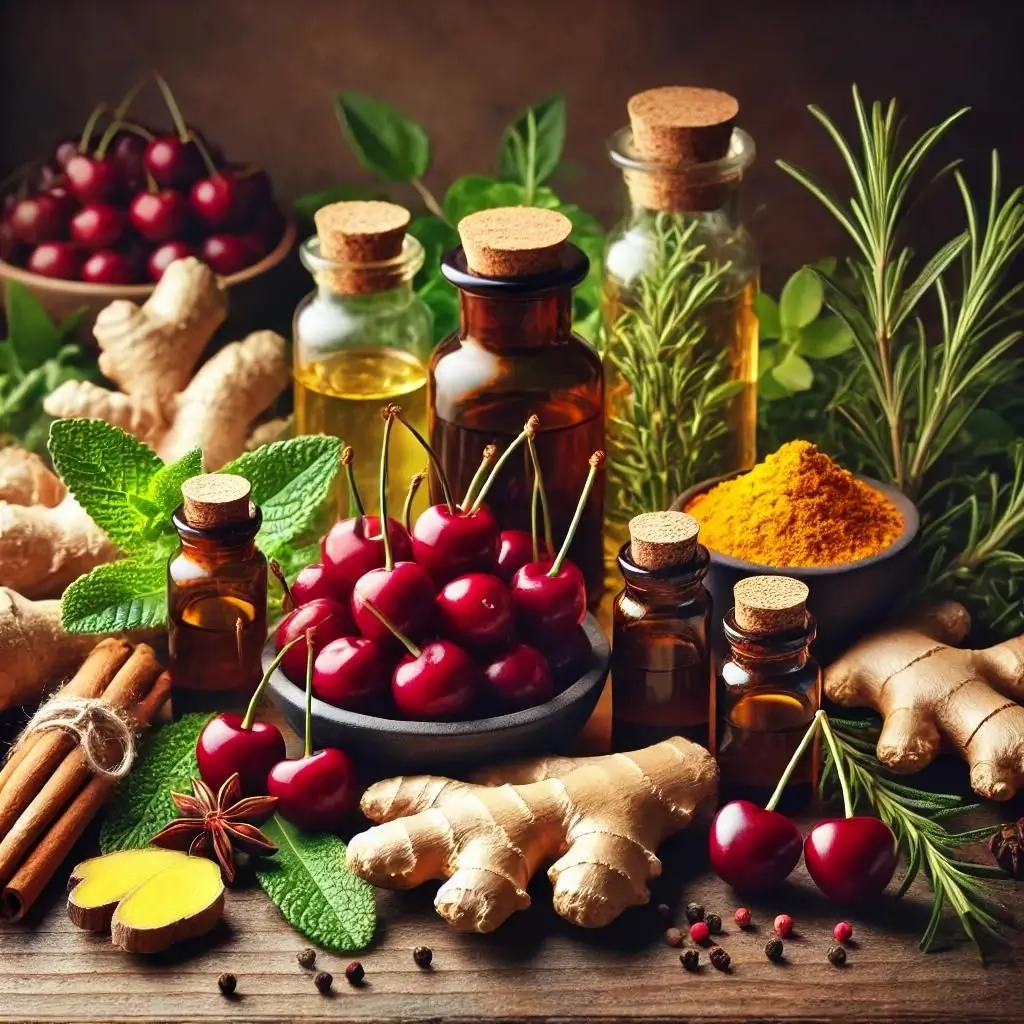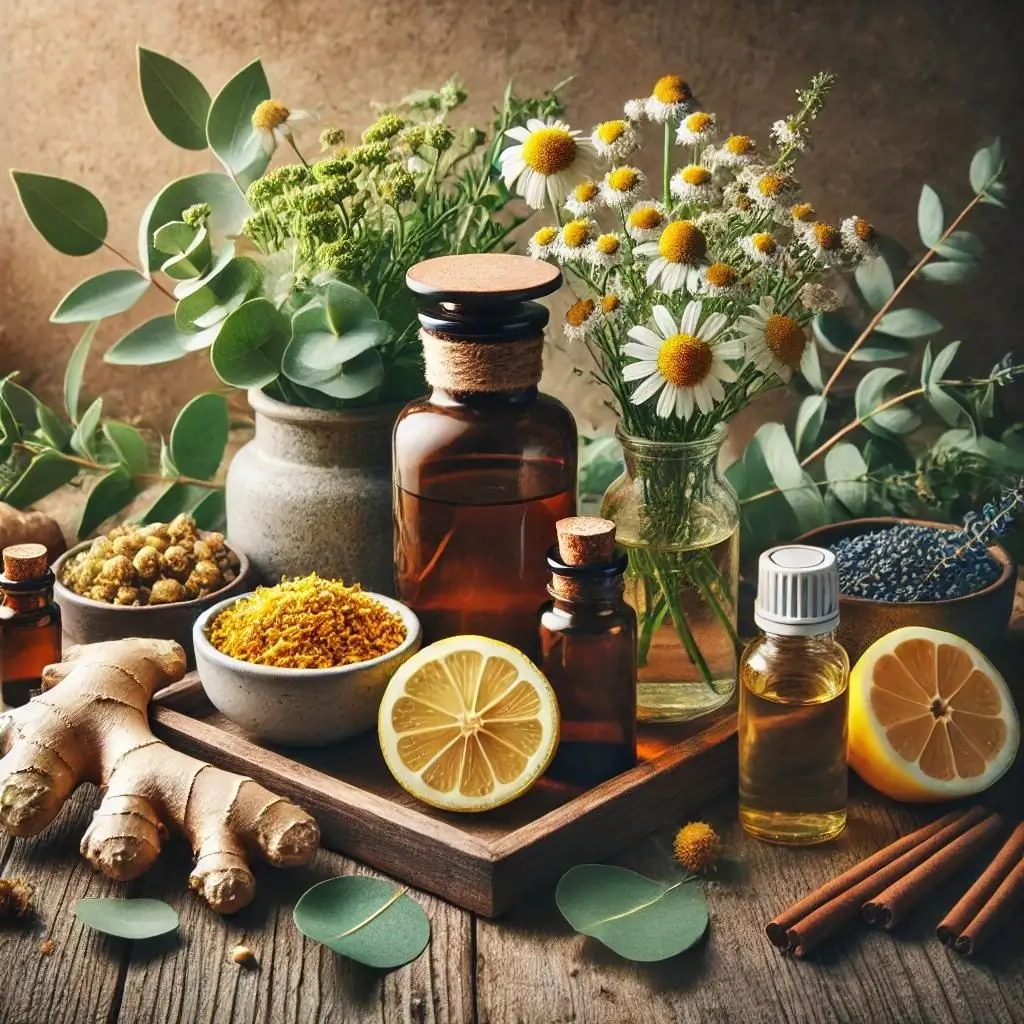Mold can be a persistent and challenging problem in many homes. Essential oils, with their natural antifungal properties, offer a non-toxic alternative to harsh chemical cleaners. In this article, we will explore how to effectively use essential oils to tackle mold issues, prevent its recurrence, and maintain a healthier home environment.
What are the best essential oils for mold?
When it comes to combating mold, certain essential oils stand out due to their potent antifungal properties. Here are the top essential oils that are most effective against mold:
- Tea Tree Oil: Known for its powerful antifungal and antibacterial properties.
- Clove Oil: Contains eugenol, which is effective against mold spores.
- Cinnamon Oil: Has strong antifungal capabilities.
- Thyme Oil: Effective in inhibiting mold growth.
- Lemongrass Oil: Offers antibacterial and antifungal benefits.
- Lavender Oil: Mild but effective against mold spores.
- Eucalyptus Oil: Known for its broad-spectrum antifungal activity.
- Peppermint Oil: Offers antifungal and antibacterial properties.
- Oregano Oil: Contains carvacrol and thymol, potent antifungal agents.
- Lemon Oil: Its acidity helps in breaking down mold.
These oils can be used individually or blended together to enhance their effectiveness.
How do essential oils kill mold?
Essential oils kill mold through their potent antifungal compounds. These natural substances interfere with the cell membranes of mold spores, inhibiting their growth and reproduction. Here’s a breakdown of how some key oils work:
| Essential Oil | Active Compounds | Mode of Action |
|---|---|---|
| Tea Tree | Terpinen-4-ol, Alpha-terpineol | Disrupts cell membranes, causing cell death |
| Clove | Eugenol | Inhibits fungal enzyme activity, leading to cell dysfunction |
| Cinnamon | Cinnamaldehyde | Alters fungal cell wall integrity, causing leakage of cell contents |
| Oregano | Carvacrol, Thymol | Interferes with cell membrane integrity, hindering growth |
These compounds not only kill mold spores but also help prevent new growth, making essential oils a powerful tool in mold remediation.
Can you use essential oils to prevent mold?
Yes, essential oils can be used to prevent mold growth. Regular application of essential oils in areas prone to moisture and mold can create an environment that is inhospitable to mold spores. Here’s how you can use them for prevention:
- Spray Solution: Mix 10-15 drops of your chosen essential oil with water in a spray bottle. Spray on surfaces prone to mold, such as bathrooms and basements.
- Diffusion: Use an essential oil diffuser in humid areas to disperse antifungal properties into the air.
- Cleaning Agent: Add essential oils to your regular cleaning solutions to enhance mold prevention.
By incorporating these methods into your cleaning routine, you can significantly reduce the risk of mold growth in your home.
How to use essential oils for mold in the bathroom?
Bathrooms are particularly susceptible to mold due to high humidity levels. Here’s a step-by-step guide on using essential oils to combat mold in your bathroom:
- Identify Affected Areas: Look for mold in corners, grout lines, and behind fixtures.
- Create a Cleaning Solution: Mix 1 cup of white vinegar, 1 cup of water, and 20 drops of tea tree oil in a spray bottle.
- Apply the Solution: Spray generously on moldy areas and let it sit for at least 30 minutes.
- Scrub Away Mold: Use a brush to scrub the area and remove mold residues.
- Rinse and Dry: Rinse with warm water and dry the area thoroughly.
- Preventive Spraying: Regularly spray the solution on bathroom surfaces to prevent mold growth.
This method ensures that mold is not only removed but also prevented from returning.
What is the most effective way to apply essential oils for mold?
The effectiveness of essential oils against mold largely depends on the application method. Here are some of the best ways to apply essential oils for mold:
- Direct Application: Apply essential oils directly to moldy areas using a spray bottle. This method is effective for concentrated spots of mold.
- Diffusion: Use an essential oil diffuser to disperse antifungal properties into the air, which helps in treating and preventing mold in larger areas.
- Cleaning Solution: Integrate essential oils into your cleaning routine by adding them to cleaning products.
- Soaked Cloth: Soak a cloth in a mixture of water and essential oils, then wipe down mold-prone areas.
Each method has its advantages, and the choice depends on the severity and location of the mold problem.
Are essential oils safe to use around children and pets?
While essential oils are generally safe, some precautions are necessary when using them around children and pets:
- Dilution: Always dilute essential oils before use to reduce the risk of irritation.
- Ventilation: Ensure good ventilation when using essential oils to avoid respiratory irritation.
- Storage: Keep essential oils out of reach of children and pets to prevent accidental ingestion.
- Pet-Safe Oils: Avoid oils that are toxic to pets, such as tea tree oil and eucalyptus oil. Opt for safer options like lavender and chamomile.
By following these guidelines, you can safely use essential oils to treat mold without posing risks to your family.
How often should you apply essential oils to treat mold?
The frequency of applying essential oils to treat mold depends on the severity of the infestation and the environmental conditions. Here’s a general guideline:
- Initial Treatment: Apply essential oils daily for a week to ensure all mold spores are killed.
- Maintenance: After the initial treatment, apply essential oils once a week to prevent mold from returning.
- High-Risk Areas: In areas with high humidity, such as bathrooms, more frequent application (2-3 times a week) may be necessary.
Regular application helps maintain a mold-free environment and prevents new mold growth.
What are the benefits of using essential oils over chemical cleaners for mold?
Using essential oils instead of chemical cleaners for mold offers several benefits:
- Non-Toxic: Essential oils are natural and free from harsh chemicals, making them safer for use around children and pets.
- Pleasant Scent: Unlike chemical cleaners, essential oils leave a pleasant aroma in your home.
- Antibacterial Properties: Many essential oils have antibacterial properties, providing an additional level of cleaning.
- Eco-Friendly: Essential oils are biodegradable and environmentally friendly.
These benefits make essential oils a preferred choice for many homeowners seeking a natural solution to mold problems.
Can essential oils remove mold stains?
While essential oils are effective in killing mold, they may not always remove mold stains completely. Here’s how you can use essential oils to tackle mold stains:
- Initial Cleaning: Use a mixture of essential oils and vinegar to clean the mold-affected area.
- Stain Treatment: For stubborn stains, create a paste using baking soda and a few drops of essential oil. Apply the paste to the stain and let it sit for 15 minutes before scrubbing.
- Rinse and Repeat: Rinse the area with water and repeat the process if necessary.
This method helps in lightening mold stains, although severe staining may require additional cleaning agents or professional help.
Which essential oils have the strongest antifungal properties?
Certain essential oils are particularly potent against fungi and mold. Here’s a list of the strongest antifungal essential oils:
- Tea Tree Oil: Highly effective due to its terpinen-4-ol content.
- Oregano Oil: Contains carvacrol and thymol, making it a strong antifungal agent.
- Clove Oil: Rich in eugenol, which is effective against mold spores.
- Cinnamon Oil: Cinnamaldehyde provides robust antifungal properties.
- Thyme Oil: Contains thymol, known for its antifungal activity.
These oils can be used alone or in combination to create powerful antifungal treatments for mold.
Conclusion
Essential oils offer a natural, effective, and pleasant-smelling solution for tackling mold in your home. With their potent antifungal properties, they not only eliminate existing mold but also help in preventing its recurrence. By incorporating essential oils into your cleaning routine, you can maintain a healthier, mold-free living environment.




